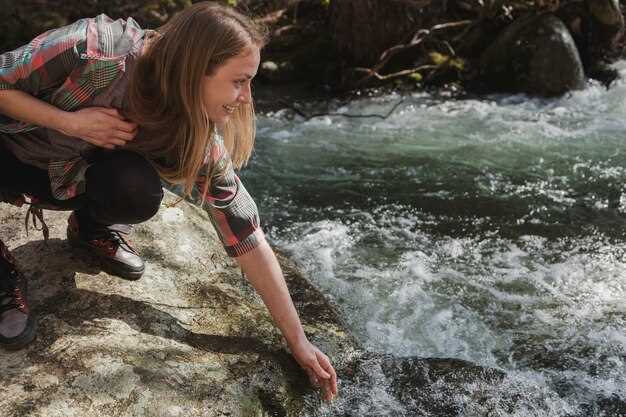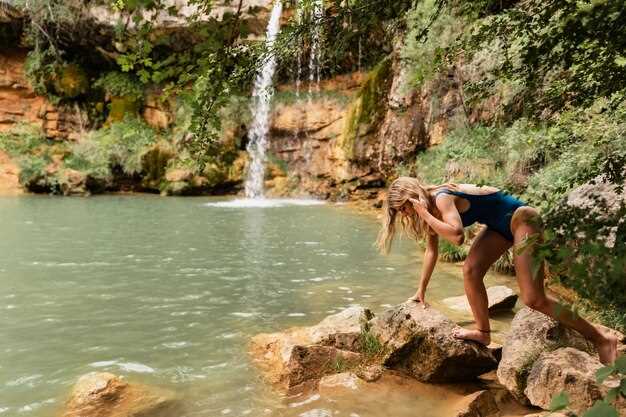Tugaloo State Park sits as a cornerstone; nearby river pools offer tranquil relief over days of sun. usually, locals start with a dawn paddle then cool river dips before the heat climbs.
eight picks within fifty miles; the bereik includes parking options, long timber shade, palmetto groves, tranquil banks near parks.
The river straddles two states; hotspot along the tugaloo corridor draws countless day visitors; tide-like crowds arrive on weekends; sight lines reveal timber, palmetto silhouettes. Upstream discharge schedules shape flows; check dam release times before planning.
During hot days, a dip brings tranquil relief; keep little ones within sight; choose pockets with lifeguard service where available.
Being outdoors satisfies a desire; being outside answers the call for movement; lots of options await across the region; Usually the best timing is morning before heat peaks; plan to visit several pockets before heavy crowds swell.
Hidden Natural Swimming Spots, Safety Tips, and Family-Friendly Ways to Enjoy the Water
Target creeks with gentle discharge; cooler water; shorelines offering easy entry; long, gradual edges suitable for first dips.
An enthusiast can introduce children to parr behavior; Marions fields lakes host vibrant pockets that largemouths reside in; largest specimens present during summer.
Seasonal window: mornings, tides influence near shorelines; fall cooling yields clearer water; towards cooler hours, families find comfortable conditions.
Safety checklist: life jackets, constant supervision by a live adult, hydration, sun protection, quick exits from shallow pools.
Entirely safe margins exist near shallow sections; always verify depth before entering.
Family-friendly tactics: keep fields of view broad; use shallow pools for splash sections; designate a quiet corner to observe parr toward deeper water; bring a cooler for hydration; use simple casting with buzzbaits along edges where vibrant life shows, away from crowds.
| Spot | Why It Works | Safety Notes |
|---|---|---|
| Marions Lakes | Shallow entry; cooler water; long edges support supervision | Supervision required; stay within shore reach; observe discharge zones |
| Creeks with gentle currents | Quiet margins; tides shift water clarity; edge zones suitable for beginners | Wear life jacket; stay hydrated; monitor for slippery banks |
| Ditches near famous fishery | Buoyant life; parr present toward deeper pools; vibrant activity along margins | Observe from shore; keep distance from traffic; pack light |
Access Points and Parking for Lake Russell Swim Spots
Park at the main park lot by the bridge; quick access to major spots. The sandy path leads to coves; spring-fed pockets of water offer clarity; truly unforgettable for locals, visitors; peak occupancy about 60 vehicles on weekends; From Charleston, the drive is roughly 40 minutes; check posted limits.
- Bridge access: main park lot by the bridge; capacity around 60 vehicles; short walk to sandy coves; spring-fed inlet visible from the pier; locals sometimes pause here for a quick dip; signs point to spots.
- Marina-side options: secondary lot near waterfront marinas; capacity around 25 vehicles; maintenance crew keeps restrooms working during park hours; a wooden boardwalk leads to a sheltered cove with clear water; fishermen occasionally share tales about a 7-pound bass near pilings; signs point to nearby sites.
- Pier overlook access: long pier provides improved water entry; parking adjacent; distance to island shores manageable; crossing to wildlife island side yields memorable views; summer crowds make this a favorite spot for countless footprints along the shore; this view feels magical to them.
- Coves, sandy pockets: off-peak times keep crowd size lower; this site features coves with sandy shores; spring-fed channels maintain cool water; a perfect place for families with younger children; seen wildlife frequent the shallows; from older visitors to younger kids, everyone enjoys the safe shoreline.
- Island option: a small island location with limited parking; access by a short bridge or launching ramp; parking capacity limited; this site sees countless visits during peak months; signage highlights permitted entry; makes for a truly serene setting; offshoot trails link to coves with postcard-like views.
- General notes: arrive early; parking fills by midday on weekends; pack water, sunscreen; keep noise low; population cycle rises during season; late arrivals may find overflow spaces near the marina lot; watch posted restrictions; respect posted signs; this approach has been unforgettable for many, especially families.
Safety Basics Before You Swim: Currents, Life Jackets, and Weather
Before entering, check current strength by scanning the shoreline; ask locals about moving rip currents, half remembered reports, recent activity.
Life jackets for kids are highly recommended; ensure a properly sized PFD sits snugly across chest, straps fastened.
Monitor the forecast from a reliable source (источник); prefer clear skies, light wind, good visibility.
Currents may push toward a rocky shoreline; beginners stay close to shore, moving only within half the distance to deeper zones.
For snorkeling sessions, pair up; keep within sight of a buddy; avoid rocky channels near docks.
Lets beginners take a controlled start at the beginning of the outing; choose an ideal shallow zone near a dock; this builds confidence.
If using boards for floating exploration, keep within the free space near the shoreline; avoid crossing into moving currents.
In march, air warms; currents shift as surrounding terrain responds; plan on calmer conditions during the morning; avoid gusts that pose risk.
Character of surrounding terrain matters; brush, rock, sandy patches shape current behavior; be mindful of hidden dips near rocky outcrops.
Whole plan emphasizes preparation; know your goals; observe the signs of changing weather; respect official advisories, if present.
Locals from columbias sit near charleston; famous spots in the surrounding area offer calmer surfaces for practice; let an adult supervise kids; keep younger ones within half a body length; this kind of preparation proves best.
Top Natural Swimming Holes Near Columbia: What to Expect
Begin with Cedar Run Basin; highly accessible entry yields a smooth ramp into a deeper zone. The main pool sits about 6–10 feet deep; upstream waterfalls feed a lively current that remains gentle.
Across the corridor, several basins sit along the rim of a limestone creek; distances extend for miles, offering multiple choices within a short drive, including shaded slots. Look for shaded pockets; each pool sits in a sheltered hollow; greenery frames rock ledges.
Snorkeling attracts visitors; snorkeling gear reveals underwater shelves, pockets, plus small fish. Trails run between pools; ditches channel runoff, creating varied depths. For probing observers, observe macro life without disturbing wildlife.
Voor vissers, spinnerbaits lokken crappie; bluegill; juvenile bass along weed edges. Casting angles shape a clean presentation; steady rhythm improves accuracy.
Times of year influence current strength; early spring floods push more liquid, late summer yields clearer liquid. Given variable flows, present conditions require caution; lets explore gradually; waterproof boots, a dry bag, sun protection deepen the experience, quality of time improves.
To share experience, lets fellow travelers share notes; above all, respect wildlife, observe posted signs, pack out trash. A mountain backdrop highlights the scenery; spooks from distant boating dangers may startle fish, so maintain quiet during visits.
Water Fun Without a Boat: Tubing, Stand-Up Paddleboarding, and Snorkeling Tips
Direct recommendation: Start with safety gear; each rider wears a PFD; a dry bag protects essentials; a whistle provides quick signaling; sun protection reduces burn risk. For tubing, choose a stable long tube with a reliable leash; attach a quick-release connector when possible; practice near shore in shallow, clear zones; avoid post-spawn currents; keep distance from brushy banks; select locations with minimal motorized traffic; look for havens such as marinas or quiet coves; stay within a safe radius of launch; supervision for youngsters is essential.
Tubing specifics: Use non-marking gear; consider a towable tube rated for multiple riders; keep a long tow rope; maintain a gentle pace around 1.5-2 mph; runs last 20-40 minutes before break; choose lakes that are man-made or natural with clear channels; pick calm coves shaded by palmetto greenery; avoid older rails or brushy shores that snag; check lake rules, post-spawn periods may bring more traffic; keep within 150 meters of launch; respect lures left by anglers; plan to vacate if boats approach.
Paddleboarding tips: Inflate a board sized for rider weight; choose 10-12 ft models for versatility; wider decks boost stability; keep knees bent, shoulders aligned with hull; select paddle length 6-8 inches taller than user; practice on a calm surface; miles of shoreline offer routes; largest sheltered bays suit learners; wind shifts require retreat to a sheltered inlet; beginners arent overwhelmed by rough conditions; wear a PFD; store gear in a dry bag when not in use; mindful of sailboats near marinas; stay clear of riprap edges along shore; enthusiasts may pursue longer routes.
Snorkeling tips: Start near greenery along palmetto banks; scout brush pockets for small- to mid-sized denizens; use a mask with tempered glass; snorkel with splash guard; fins sized to comfort; stay within a tranquil zone close to shore; pick routes with the clearest visibility in late morning; watch for lures drifting from anglers; keep distance from riprap edges; avoid busy marinas, sailboats during peak hours; if vacation plans include a guided session via a local charter, sign up; beginners arent overwhelmed by crowds; success comes from prep, not speed; set goals, keep promises to safety; theyll improve with practice; if a 7-pound bass appears, observe from a respectful distance; older divers may appreciate a slower pace to enjoy the haven.
Family-Friendly Spots: Accessibility, Amenities, and Quiet Hours

Recommendation: Start at Lake Murray shoreline for a calm, accessible day; flat boardwalks suit strollers, restrooms nearby, shaded pavilions, sparkling water with boats drifting by; launch areas really offer a safe start for tiny catches.
Accessibility details: ADA ramps to water edges at several public access points on Lake Murray; parking lots marked for wheelchairs; paved routes to fishing piers; clear distance markers guide families from the murrays area toward kid-friendly parr spots; signage ensures low-slope routes for strollers.
Amenities include portable restrooms, shaded picnic tables, splash zones for kids; cabins nearby for a couple overnight stays; house rentals also available; several short trails loop around a tiny island with a parr-friendly viewing point; a designated boat launch keeps your live bait selection simple.
Quiet hours guidance: dusk restrictions apply; finish visits by 8 pm in summer, 7 pm shoulder seasons; setting favors early starts; posted signage outlines hours, light noise levels, dog leash rules; respect nearby cabins; thanks to this true area, visitors experience calm mornings with birds; if youve questions, the kiosk crew can help.
What to bring: a small tote, compact nets, sun protection; setting choices include a nearby fishery workshop at the Monticello area; between miles of shoreline, tiny coves offer hidden pockets where trout, parr, or small fish surface; in the murrays zone, a couple of boats begin a true learning curve with a simple kit; actually, the best results start with patient listening to tides; this starts bites more reliably.

 Laten we terugkeren naar de natuur – Zwemwateren en waterpret rond Columbia">
Laten we terugkeren naar de natuur – Zwemwateren en waterpret rond Columbia">
